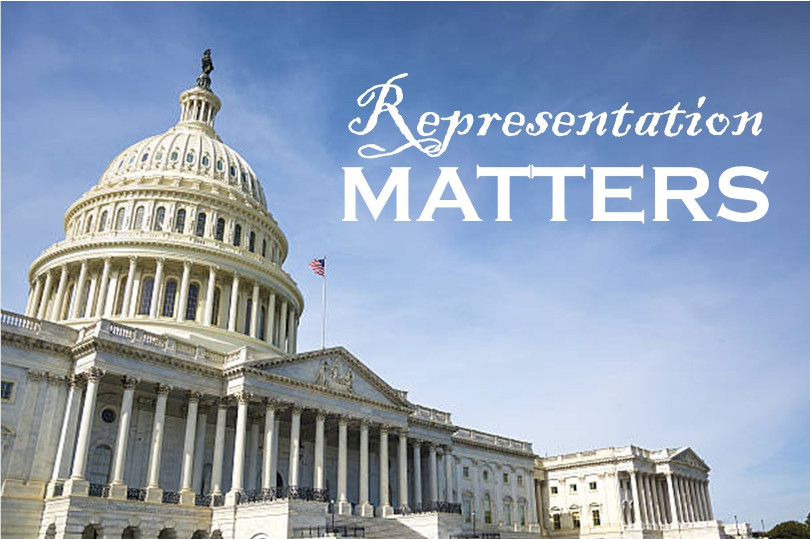In the United States, where more than forty million Black people are represented by the measly eleven percent of Congress and three percent of the Senate that’s Black, representation matters.
At a glance, it might seem acceptable for just eleven percent of Congress to represent just thirteen percent of Americans. A closer look leads one to wonder what eleven percent of anything can accomplish where majority rules. With one of 46 presidents and two of 115 Supreme Court justices having been Black, Black Americans have long been desperate for government officials that look like them.
The hunger for Black representation was shown in force during the 2008 presidential election. Barack Obama’s candidacy wasn’t just historic for resulting in the nation’s first and only Black president to date, but also for getting the Black voter turnout to eclipse the white turnout for the first time in history. Understandably, nothing brought Black voters to the polls like the sight of themselves, and herein lies the undeniable power of representation. Even an intimation of self-governance burst open the floodgates, converting the apolitical to the political and the political to the fanatical.
While I’m sure the overwhelming majority of President Obama’s supporters voted because of his campaign promises, there are certainly some who voted because of his race. Some—primarily his detractors—see this as a lapse in judgment. I see it as the result of centuries of deprivation. Under normal circumstances, it’s obvious that category should never overshadow qualification, but there’s nothing normal about the circumstances responsible for the never-ending oppression and suppression of Black Americans. Irrespective of his merits, some looked at Obama and simply saw a win. Promises, policies, and personality aside, he represented something that had eluded the nation for centuries, that had never existed, that many had never thought possible. Every Black trailblazer was a win, but none could even approach the magnitude of the forty-fourth.
Though most Black trailblazers retain legendary status, not every representative that has followed has been so well received. When the second Black Supreme Court justice, Clarence Thomas, was nominated by President George H. W. Bush in 1991 to fill the void of the retiring first Black Supreme Court justice, Thurgood Marshall, Bush insisted that Thomas’ race wasn’t a deciding factor, and that he was simply “the best person at the right time.” The prevailing Black and liberal opinions begged to differ. The NAACP opposed the conservative Thomas’ nomination, concluding that while they believed Marshall should be replaced by a Black justice, “Judge Thomas’s confirmation would be inimical to the best interests of African Americans.” They advocated for representation, but within reason.

Ketanji Brown Jackson, who recently became the third Black Supreme Court Justice, however, has just the degree of Black support that Thomas fails to secure. Her credentials, composure, and natural hair have guaranteed her superstardom even before her potential appointment. Obviously, her performance as a judge greatly exceeds the importance of her hair texture, but that importance is born of the sincere need for Black representation.
Jackson’s nomination was the deliverance of President Biden’s campaign promise to put a Black woman in the Supreme Court. I fully understand why some take issue with the language of that promise—a Supreme Court justice should be fair, shrewd, and an expert on the law, not merely Black and female. But perhaps it’s important, in this particular cultural moment, that she be both. When Biden announced Jackson as his nomination, he admitted that “for too long our government, our courts haven’t looked like America.” And shouldn’t they?


